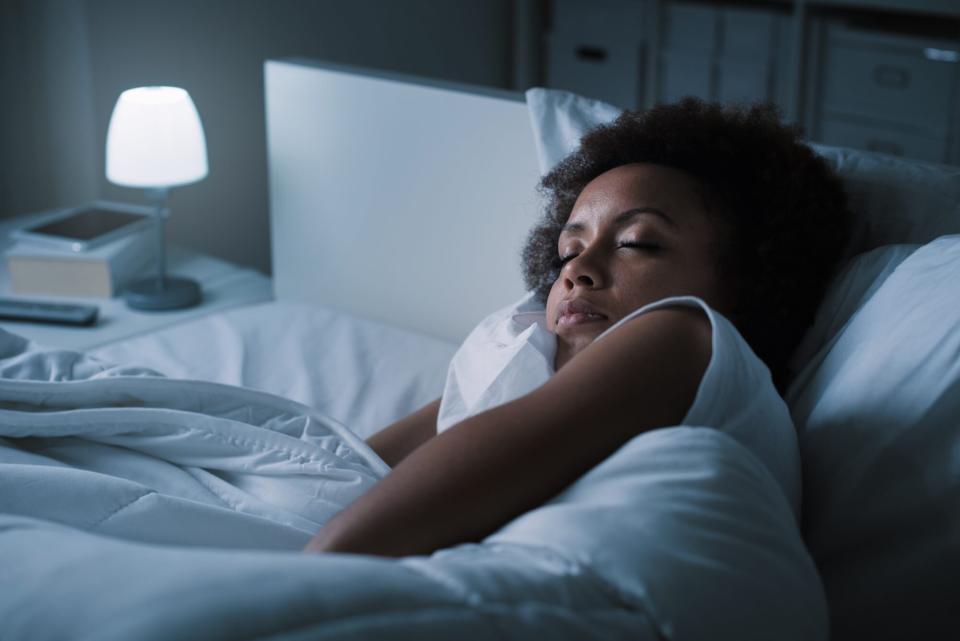How Do Your Dreams Change During the Course of a Night?
Sometimes our dreams are vivid as we drift off to sleep, even mirroring our real-life situations. Researchers note that our nighttime thoughts are dictated by two types of sleep: Non-REM and REM. According to Psychology Today, non-REM sleep is helpful for learning and strengthening your memory of events in your life. In turn, your non-REM sleep dreams are directly connected to your recent life experiences. REM sleep, on the other hand, is associated with emotion and your general connections between memories, so these types of dreams are more outlandish and emotional. With this information in mind, a team of researchers explained in a new study published in Consciousness and Cognition that our dreams themselves also change throughout the course of a night's sleep.

getty images / demaerre
The researchers studied 68 participants over the course of two nights. Each night, participants woke up four separate times (every two hours) to explain and record their dreams. The test subjects all woke up in the morning and listened to their reports and followed this up by filling out a questionnaire about each dream. First, the questions asked whether or not the dream were connected to real life currently (in the past month), the recent past (one month to one year ago), the distant past (over one year ago), or the future. Next, the questions prompted the participants to explain if the dream was associated with real life in general, literally, or metaphorically. Finally, each person needed to answer if the dream was related to their real-life events, if the dream itself was bizarre, emotionally intense, negative or positive, stressful, or important.
After digging into their findings, the team found that early-night dreams (the first four hours of sleep) had the strongest connection to "waking life," which is from the current-day events, the recent past, future, or otherwise related. The researchers shared this example, "I was at work. We had orders coming in. I was cataloguing…I was replacing lots of cutters. There wasn't very much time, and there was some pressure to get the cutters replaced."
The authors noted that dreams from the later part of the night (about the last four hours of sleep), were more emotional, important to the participants, bizarre, metaphorical, and connected to the distant past, like this example: "It's a big party with exams, the exams were actually happening at the party, people were getting called into a room one by one on their own. My partner turned up with his stupid car. Everyone was in sort of modern Victorian dress. Time was dancing, yeah time was actually dancing, not time spent dancing. The teapot from Beauty and the Beast was there. [Person] was there was well. I was happy. We were all in modern Victorian dress. Fireworks."
So, next time you wake up from a seemingly crazy dream, consider how long you've been asleep and make assessments on its relation to your real life.

